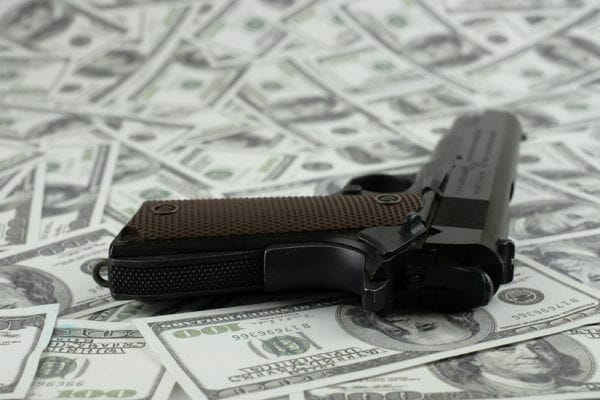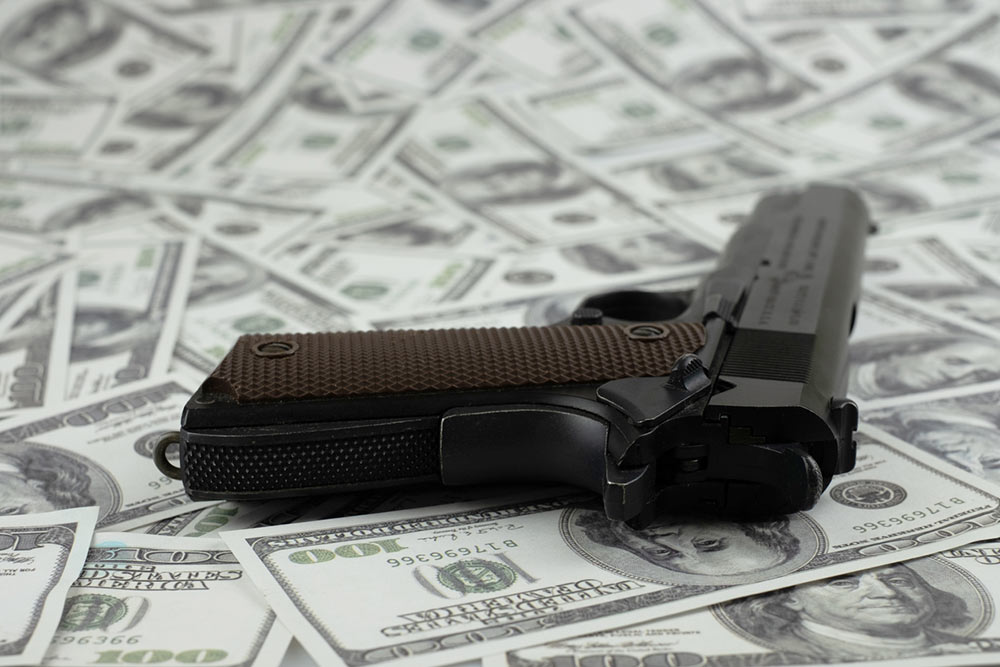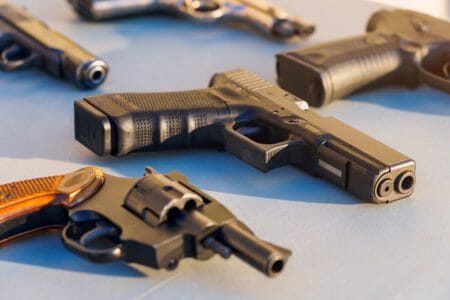
Accusations of wealth-based discrimination now surround Santa Clara County as pro-Second Amendment groups challenge its concealed carry permit system in court.
The Second Amendment Foundation and California Rifle & Pistol Association have launched a federal lawsuit against Santa Clara County, challenging what they argue constitutes the most expensive concealed carry weapon permit system in the United States. The case, Robert M. Blank, et al. v. Santa Clara County Sheriff’s Department, directly confronts permit fees reaching $2,000 and mandatory psychological evaluations for all applicants, regardless of individual circumstances.
BREAKING – Second Amendment Foundation, joined by the California Rifle & Pistol Association, has filed a lawsuit challenging Santa Clara’s obscene CCW permit fees.
When all expenses to the applicant are factored in, Santa Clara is the most expensive place in the country to get… pic.twitter.com/zb8PndY2M1
— SAF (@2AFDN) September 22, 2025
Santa Clara County’s fee structure creates significant financial barriers for law-abiding citizens seeking to exercise their Second Amendment rights. The county charges almost $1,000 in application fees alone, plus $400 for mandatory training requirements and $500 for psychological examinations. Additional costs include fingerprinting and renewal fees every two years. This represents a dramatic increase from the previous fee structure, with the county raising fees from $662 to $976 in January 2025.
Second Amendment advocates should be deeply concerned about this case because it establishes a dangerous precedent of wealth-based restrictions on constitutional rights. SAF Executive Director Adam Kraut characterized these fees as “nothing short of a pay-to-play scheme wherein only those with the means to afford the application costs have the ability to exercise their constitutional rights.” This creates what constitutional scholars describe as an unconstitutional “wealth qualification” for exercising Second Amendment rights.
The Supreme Court has consistently ruled that governments cannot impose special taxes or fees on constitutional rights. In Murdock v. Pennsylvania (1943), the Court established that “a state may not impose a charge for the enjoyment of a right granted by the Federal Constitution.” Constitutional law scholarship emphasizes that “raising the cost of some activity through taxation will disproportionately discourage the financially disadvantaged from engaging in it,” effectively reserving “Second Amendment rights for those with a long purse.”
The 2022 Supreme Court decision in New York State Rifle & Pistol Association v. Bruen fundamentally transformed Second Amendment jurisprudence by requiring that gun regulations be “consistent with this Nation’s historical tradition of firearm regulation.” Under this new framework, modern restrictions must demonstrate clear analogues in historical practice from the founding era through Reconstruction. Santa Clara County’s excessive permit fees completely lack historical precedent, as no evidence exists of comparable financial barriers to exercising Second Amendment rights in early American history.
The psychological testing requirement presents equally serious constitutional concerns. Santa Clara County mandates that every applicant undergo psychological evaluation without any individualized cause or suspicion. While California Penal Code Section 26190(e) permits psychological testing, it only grants discretionary authority to licensing officials for specific circumstances. The law explicitly states that “additional psychological assessment of an applicant seeking license renewal shall be required only if there is compelling evidence of a public safety concern.” Santa Clara’s universal requirement appears to exceed statutory authority by treating all law-abiding citizens as presumptively unfit to carry firearms.
Post-Bruen analysis strongly suggests that subjective suitability determinations violate the Second Amendment. Federal courts have explained that “discretion to deny licenses based on a perceived lack of need or suitability” is impermissible under Bruen. The Supreme Court specifically rejected New York’s “proper cause” requirement precisely because it allowed licensing officials to exercise subjective judgment about an applicant’s need to carry firearms. Mandatory psychological testing without individualized cause effectively reinstates the type of subjective evaluation process that Bruen prohibited.
The California Rifle & Pistol Association correctly identified this as “a clear attempt to reinstitute a subjective process for granting citizens their rights, similar to how many anti-2A jurisdictions used the ‘good cause’ provision.” This represents an end-run around Bruen’s constitutional mandate by substituting psychological evaluation for the prohibited “good cause” standard.
The lawsuit also raises First Amendment concerns related to Santa Clara County’s apparent requirement for campaign contribution disclosures as part of the licensing process. This creates a chilling effect on political speech while simultaneously restricting Second Amendment rights.
Historical analysis reveals that an unqualified right to bear arms served as a means by which economically disadvantaged citizens could defend themselves. Creating financial barriers fundamentally undermines this principle of equal access to constitutional rights. The Supreme Court has established that fees on constitutional rights may only be imposed if revenues are used solely to defray administrative costs of the licensing system, and revenue-raising measures directed at constitutional rights cannot satisfy constitutional scrutiny because generally applicable taxes are always available as alternatives.
This case represents a critical test of post-Bruen jurisprudence and could establish important precedents nationwide. A successful outcome could prevent other jurisdictions from implementing similar cost-prohibitive schemes and ensure that Second Amendment rights remain accessible to all law-abiding citizens, not just the wealthy.
Second Amendment supporters must view this lawsuit as a fundamental challenge to preserve equal access to constitutional rights and prevent the creation of a two-tiered system where only the wealthy can afford to exercise their right to bear arms.
The outcome will ultimately determine whether state and local governments can put constitutional rights out of reach for ordinary Americans by attaching prohibitive price tags to their right to bear arms.
DOJ Tells Court NJ’s AR-15 and Magazine Bans Violates Second Amendment
About José Niño
José Niño is a freelance writer based in Charlotte, North Carolina. You can contact him via Facebook and X/Twitter. Subscribe to his Substack newsletter by visiting “Jose Nino Unfiltered” on Substack.com.







If a permit holder commits a violent crime with a gun, does the psychologist become liable in a civil suit? That would have a chilling effect on a psychologist’s willingness to pass anyone lest they be open to being sued. Another roadblock in this already unconstitutional scheme to disarm the law abiding civilian population.
The “FEE” charge IS TOTALLY UNCONSTITUTIONAL. Government has no right to CHARGE a FEE in order for a Legal Law Abiding American Citizen to EXERCISE HIS CONSTITUTIONALLY ACKNOWLEDGED SECOND AMENDMENT RIGHT!! IF the “government” DEMANDS a “training period – ETC:”, then the government MUST PAY for that REQUIRED PROCESS!
“The democrats are for the working people.” Bullshite! They are so afraid of the working people they will put up obstacles to prevent the working people from exercising their God given right to self-defense. You can bet the elite will have their CCL’s, and guns while they also have security patrol their gated communities.